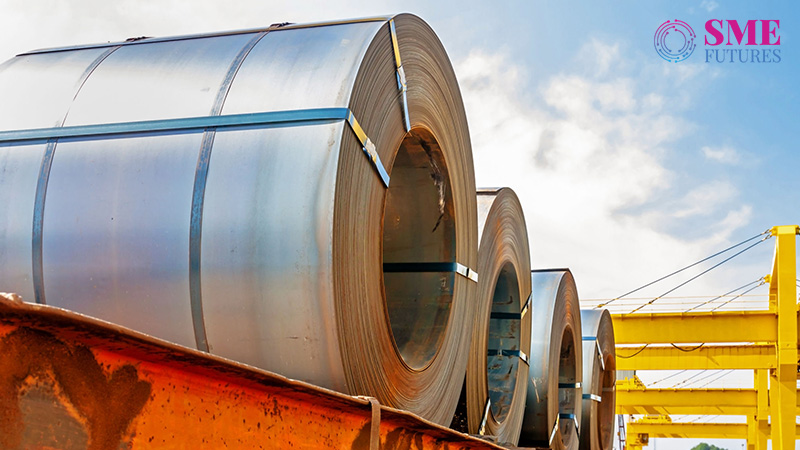Imposition of export duties on steel products will send a negative signal to investors and adversely impact capacity expansion projects under the PLI scheme, steel industry players said after the government removed customs duties on raw materials and hiked export taxes to check local prices. The government on Saturday waived customs duty on the import of some raw materials, including coking coal and ferronickel, used by the steel industry, a move which will lower the cost for the domestic industry a move which will lower the cost for the domestic industry and reduce the prices.
Also, to increase domestic availability, the duty on exports of iron ore was hiked up to 50 per cent, and a few steel intermediaries to 15 per cent, according to a notification.
In a statement, the steelmakers’ body, the Indian Steel Association (ISA), said the industry welcomes the removal of import duty on coking coal and few other input raw materials for the industry.
Also Read: Centre’s intervention on steel, cement: Here’s what realtors have to say
“However, imposition of export duty on steel will only send a negative signal to investors in the steel sector and will adversely impact the sector’s capacity utilisation. India has been increasing its engineering and steel exports over the last two years and has the potential to become part of a larger global supply chain.
“India may lose the export opportunities now and this decision may also impact the overall economic activity in the country,” the association said.
Also, the imposition of export duty will help other countries to increase their share in the global market, which India will vacate. Rebuilding the lost ground may take a very long time, as the supply chain will be disrupted, while India’s credibility as a reliable exporter will take a hit, the ISA noted.
The body further said, “Steel industry in India has made the largest investment commitments ranging from 36 per cent to 40 per cent of total investments committed by the entire manufacturing sector. These investments in capacity building are needed to achieve the Atmanirbhar Bharat Vision.
“In light of this decision, new capacities creation may get impacted as they would be seen as uneconomical thus affecting the much-awaited investment against PLI scheme for speciality steel.”
Besides, it may have a major impact on the entire supply chain in the long term. The economic activity of a few states dependent on minerals and steel will be further hit.
“These measures need to be deliberated and then a calibrated approach may be taken. The steel industry continues to remain committed to nation-building,” the association said.











